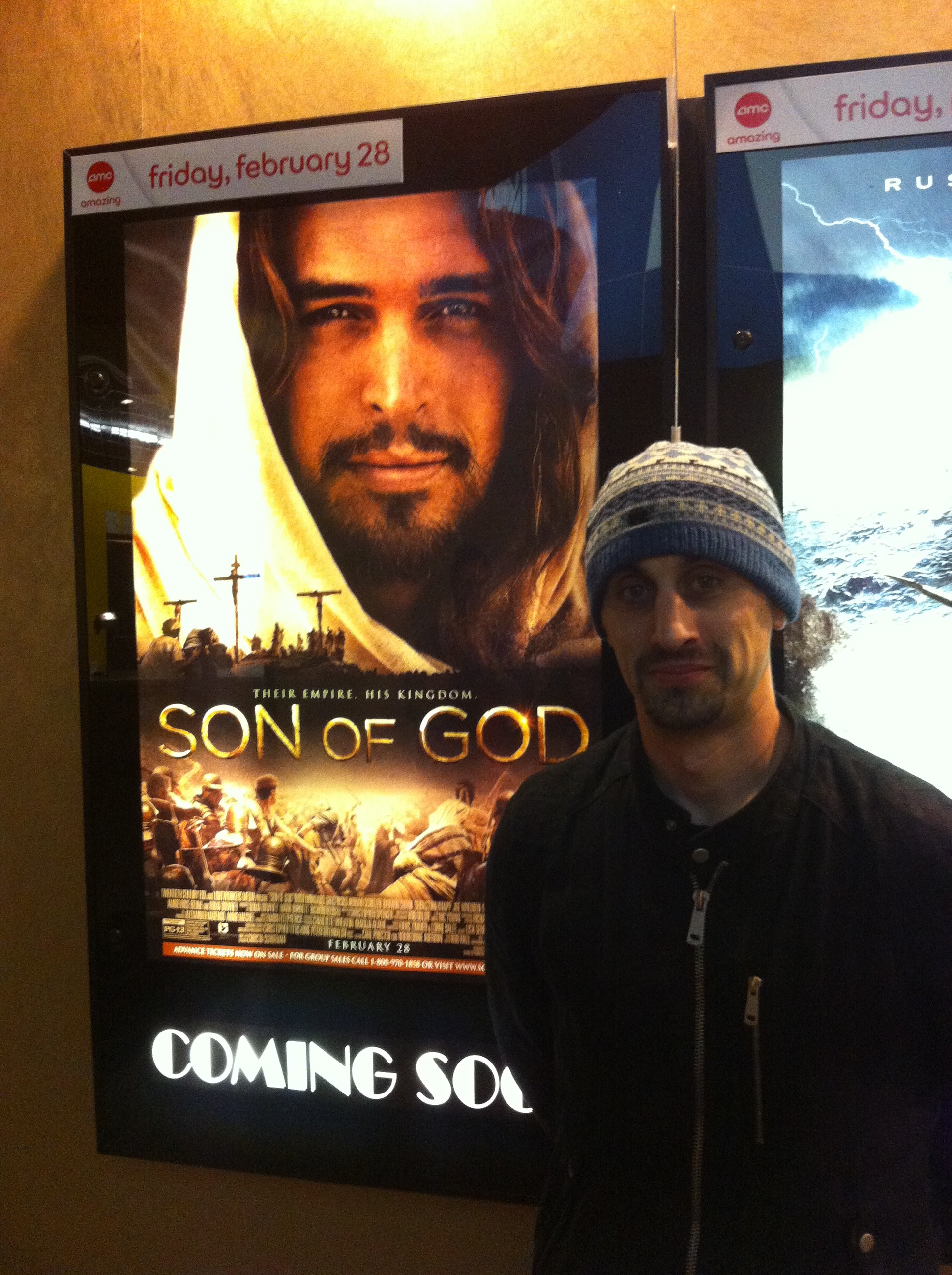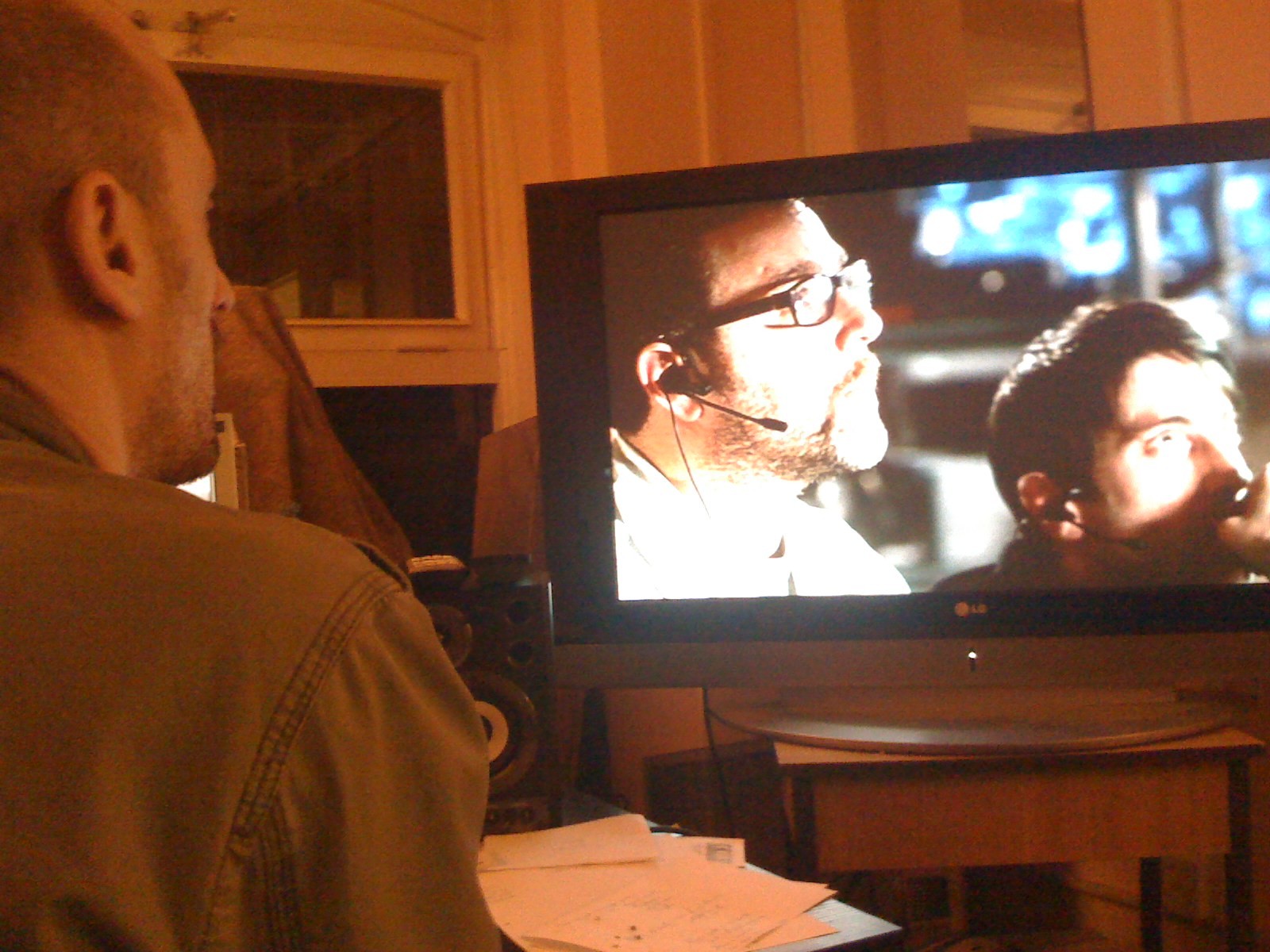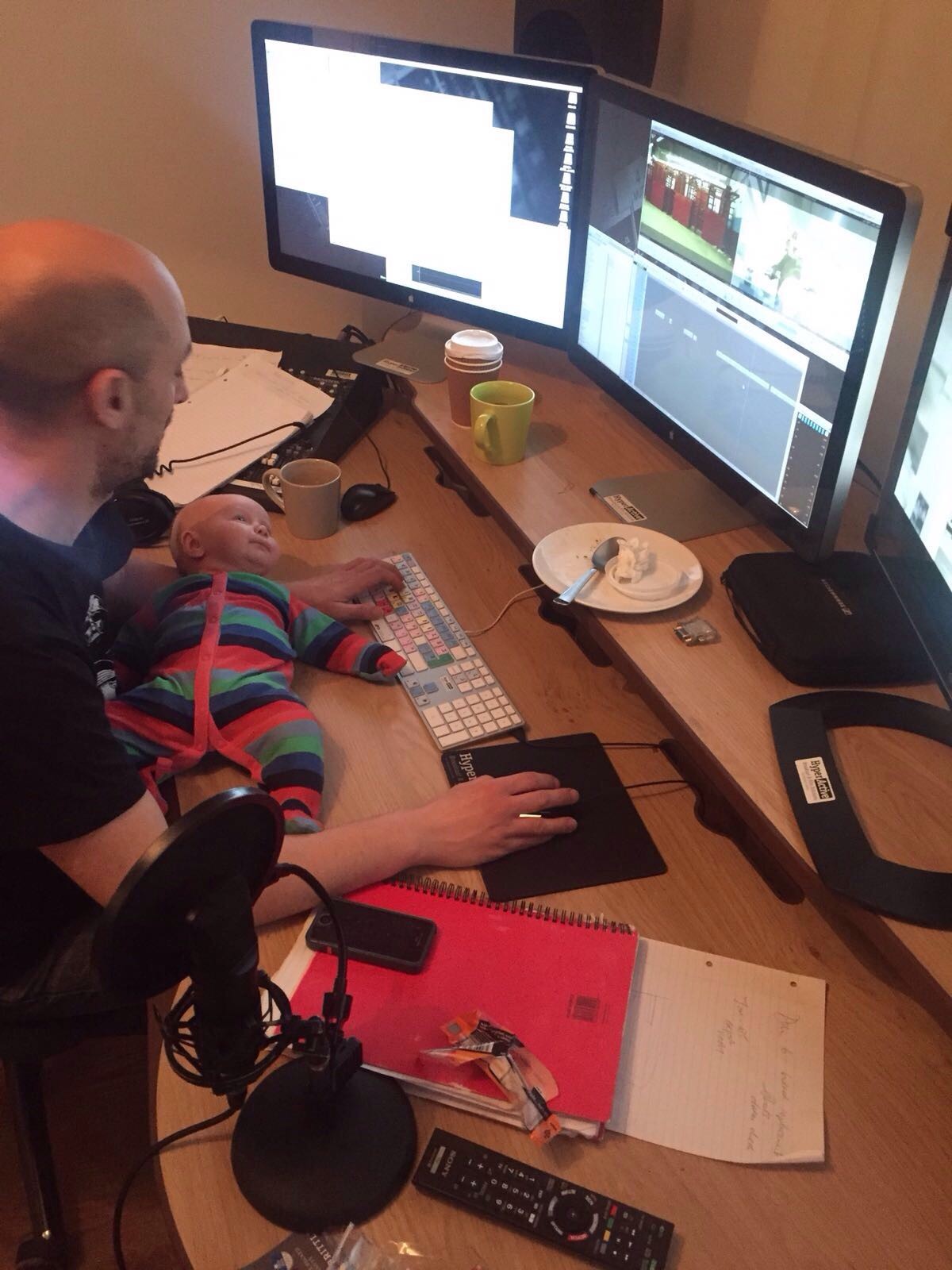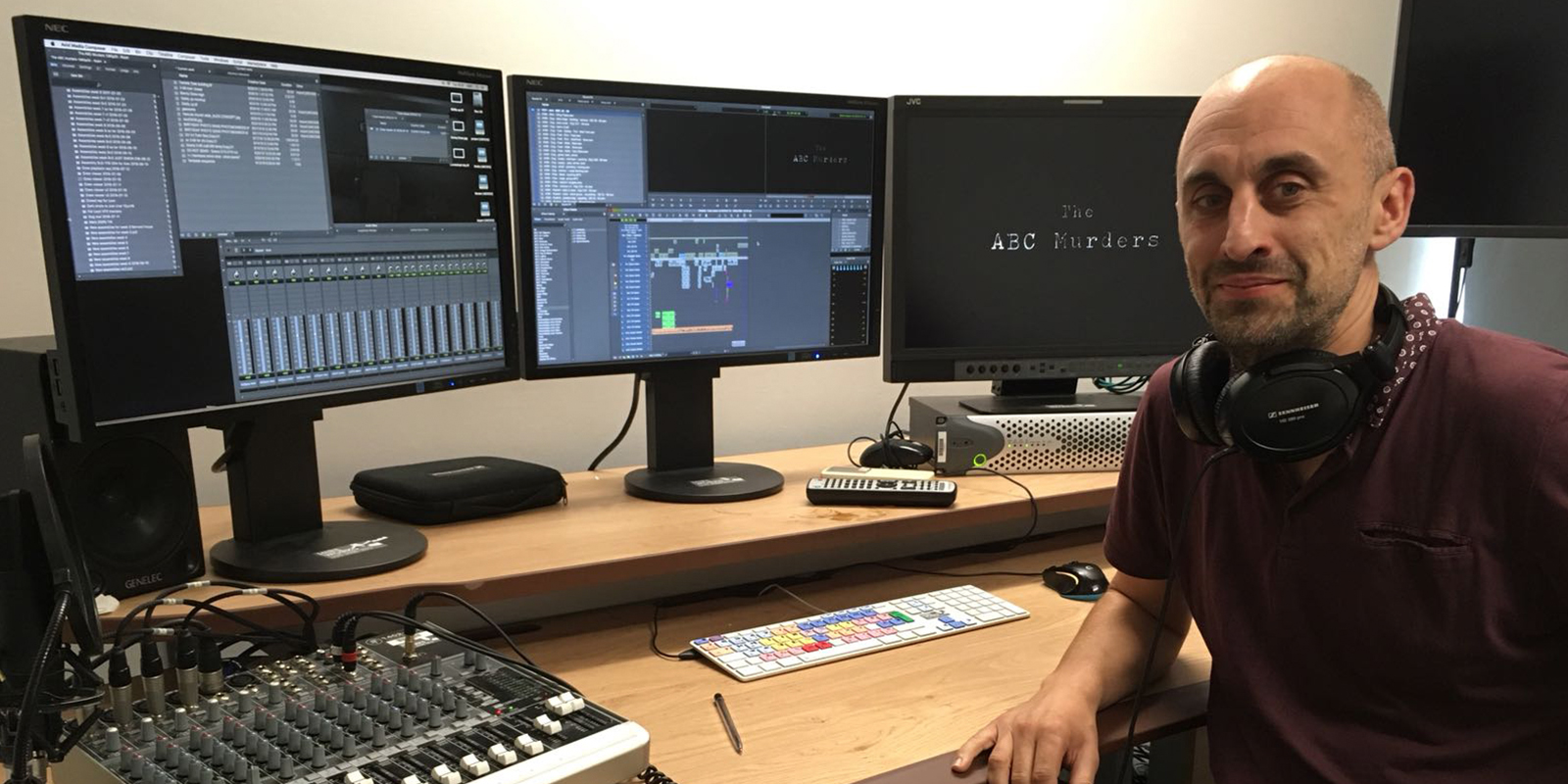We were delighted when Robert Hall said yes to talking with us about what he's been up to since graduating from our Filmmaking Diploma all the way back in 2001. Robert is just finishing as Assembly Editor on 'The King's Man', an epic prequel in the spy hero franchise, set amid World War I at the origin of the Kingsman organisation, and has also recently worked on 'Final Score', starring Dave Bautista, Pierce Brosnan, Ray Stevenson, as well as recently aired 'The ABC Murders' on BBC, starring John Malkovich and Rupert Grint.
Here, we sit down with Robert to get the low down on what it's like to be an editor on such high profile films and television shows, and how he got to where he is now.
London Film Academy: What inspired you to work in film?
Robert Hall: I’d always had a love of film from an early age, but growing up in a small town in the southwest of England, I never knew it was a possibility to actually work in the industry. It wasn’t until a colleague of mine when I was working in IT, Alan Holdsworth (who I believe actually went on to study at the LFA), gave me some application forms for Industrial Light & Magic (ILM), that I realised it was achievable. While I didn’t apply for ILM, I started making plans immediately to find my place in film.
While you were a student at London Film Academy (LFA), your main focus was on editing. What drew you to that part of the filmmaking process and why?
I actually came into LFA with three main areas of interest, those being cinematography, screenwriting and editing, and my focus on editing developed through the duration of the course. The combination of the technical aspects and the creative aspects were a big draw for me. I had creative ambitions and arrived with good technical skills (my educational background is in engineering, electronics and computer programming) so it seemed like a perfect fit for me. Learning about the creative process of editing during my time at LFA was a revelation to me – the sheer power to redefine the storytelling with almost limitless potential was fascinating.
What was it like to work on your first job as a First Assistant Editor after graduating, and was that ‘Resident Evil: Apocalypse’? That’s a great role fresh from graduating at LFA.
I stayed in regular contact with LFA after my course and was lucky enough to be offered by Daisy Gili to accompany 
Once on set, what were there parts of the job that surprised you?
As part of the editorial department, you don’t necessarily have to go on to set very often, although you are normally on location during shooting to have close contact with the crew as and when you need it. When you go on to a full-scale set for the first time, it takes you back a bit at the sheer scale of the process – the number of people, the amount of equipment, the pressure and the intensity. It’s only really then that you understand the thousands upon thousands of hours of work that go into each frame of the film, and it’s this appreciation that should be retained in the cutting room as you make your decisions. You need to honour all the work that came before you by doing the best job you can on a daily basis.
And right now you’re working as the Assembly Editor on ‘The King’s Man (the prequel to ‘Kingsman: The Secret Service’). How has this experience been for you? And how much control do you feel you have in your role?
We’re still in post-production, so I can’t really say too much about it, but while my role is officially as assembly editor, I’m essentially working as editor under the leadership of the lead editor. It’s great to be on such a high profile production and some segments of the film have been very much under my control, not just from an assembly perspective, but also in a fine-cutting role.
Having now had experience in both film and television (‘The ABC Murders’, ‘Life Begins’, 'Lewis’) did you notice a difference between the two as an editor? Do you prefer one over the other?
The first few years of my career were solely in film, but I wanted to make sure that I had a hand in television as well, as the work is constantly there and film can be a little less consistent. The two tend to be a bit exclusive still, so having worked in film for a number of years there was still some reticence from productions to hire people that haven’t done much television. It’s baffling to me but that’s how it is. The creative power structure is different in UK television to film (and different again in US television). In film, the creative process is usually driven from the front by the director followed by, or in parallel with, the producer(s). In television, once you’ve done the first cut with the director, you’re very much under the guidance of notes from the executive producers. The schedules in television are, as a rule, tight, so you very much have to blast it to get the best out of the material. I personally still prefer working in film, primarily because of the greater creative flexibility, not least borne out by there being no restrictions of programme duration and less time pressure.
If you could go back in time to when you were a student at the London Film Academy and give yourself one piece of advice what would it be?
That’s a tricky one! Maybe save more money before starting the course? I was on the bursary scheme and had a government career development loan and after the course I spent a long time on the breadline with lots of debt. It takes time to get paid a reasonable wage (if at all) in the UK. It was ‘Resident Evil: Apocalypse’ that was my saviour from a financial perspective. Crazy as it might sound, it was doing that job for 9 months that got me back to zero in my bank account and allowed me to continue.
And what tips would you give to someone wanting to start out in Editing, or wanting to get into being an Assembly Editor?
I’m a great believer that you should start as an assistant editor (or trainee). Learning the craft, understanding how the entire process works functionally, technically and logistically, is crucial to having the greatest creative freedom. There’s countless times that I’ve solved creative problems as a result of knowing HOW something can be solved. It also means that when you have a team of assistants working with you, you are able to make sure they are operating at their most effective levels. There’s also the case of patience: making the step up to editor from assisting can be difficult because you need to convince people that you can do it, so all you can do is the best job you can possibly do on a daily basis and eventually the break will come. It may come quickly but it may also take many years, but it will come. I’ve seen many, many instances of this, where hard working, diligent assistant editors have made the step up through sheer persistence and determination.
Can you share with us a little about how you choose your projects? Which have been your favorite?
It’s only in very recent years that I have actually had a semblance of being able to pick and choose from more than  one option. Unless you’re lucky enough to not have to worry about paying for rent, bills and food, there’s a long period where you’ll have to take the first job you’re offered, provided it’s going to pay enough to cover those things! You do the best job you can whatever the job is. I have two favourite jobs that I’ve worked on, both early in my career – ‘The Tournament’, which was my ‘break’ film stepping up as editor. It was my first job with director Scott Mann, who I have a great relationship with and had a great time working with in what was a wild ride of a job, and then also the next film ‘Red White & Blue’ with director Simon Rumley, who again I have a great relationship with. This was a super-low budget film but was the best script I’ve read to-date and it was a dream to edit.
one option. Unless you’re lucky enough to not have to worry about paying for rent, bills and food, there’s a long period where you’ll have to take the first job you’re offered, provided it’s going to pay enough to cover those things! You do the best job you can whatever the job is. I have two favourite jobs that I’ve worked on, both early in my career – ‘The Tournament’, which was my ‘break’ film stepping up as editor. It was my first job with director Scott Mann, who I have a great relationship with and had a great time working with in what was a wild ride of a job, and then also the next film ‘Red White & Blue’ with director Simon Rumley, who again I have a great relationship with. This was a super-low budget film but was the best script I’ve read to-date and it was a dream to edit.
Was there a person (peer, tutor, speaker, etc.) at LFA who you found particularly influential, and in what way?
I think it was actually the co-founder and joint principal Daisy Gili. I came to the LFA with no film experience, and she was at the beginning of her journey starting the academy, and I think we both had a similar drive and determination to make it work and be successful. I’m always grateful for her relentless support and friendship over the duration of the course and the 18 years since then.
What has been your greatest lesson in your career thus far?
The one overriding phrase that I always try to keep in mind is a phrase frequently used by the editor Eddie Hamilton, which is ‘world class’. When you make a film or a television programme, you’re trying to make this appeal, in whichever way, to as many people as possible. So, especially in today’s instant worldwide accessibility of media, you are competing not with the students alongside you, not with the people you’ve worked with in the past, and not with the other productions in your city or country – you’re competing with the entire world, and the only way to be successful is to aspire to achieve the absolute world class best that you can, every day.
In terms of your career progression, where would you like to go next?

And finally, do you have any exciting projects on the horizon after ‘The King’s Man’ that you can share with us?
My next project is not officially confirmed yet, but it’s with a director I’ve worked with before and should be both innovative and a lot of fun!

